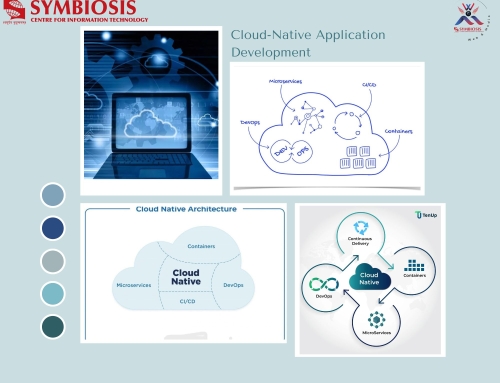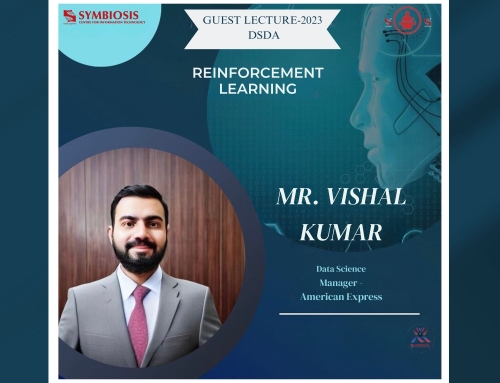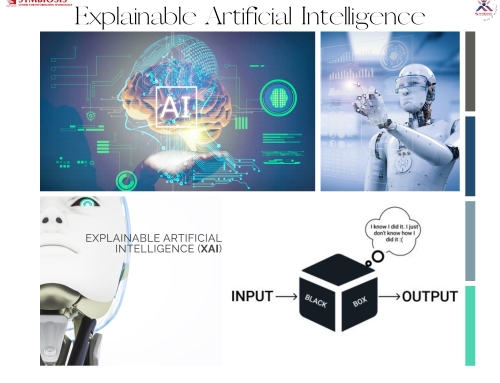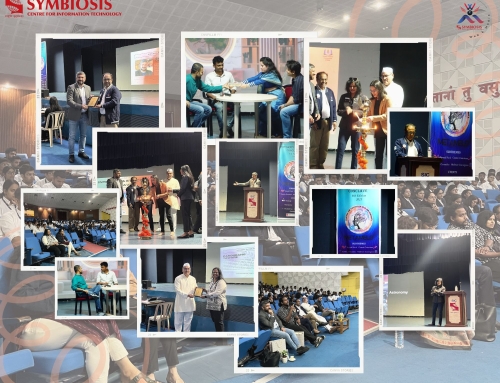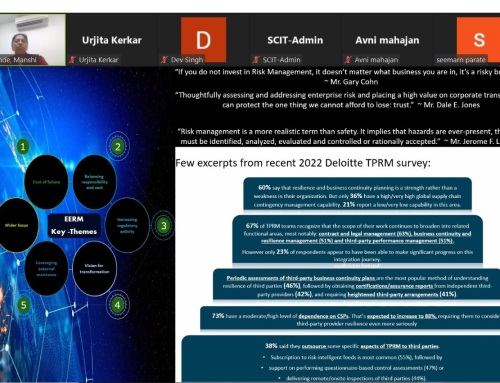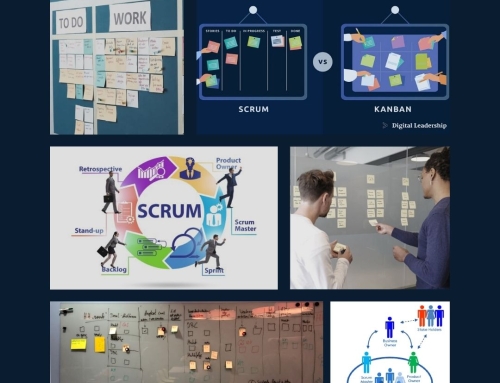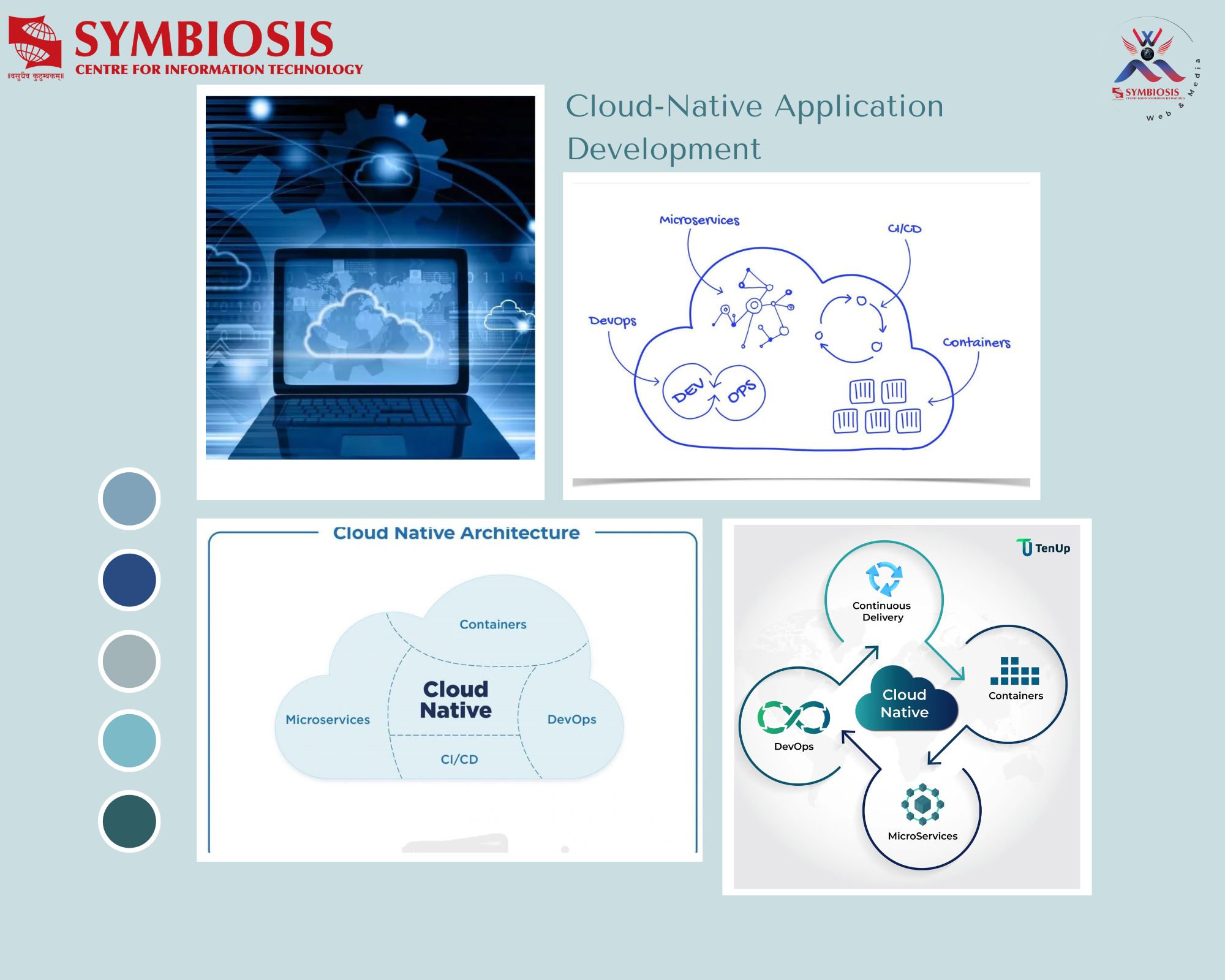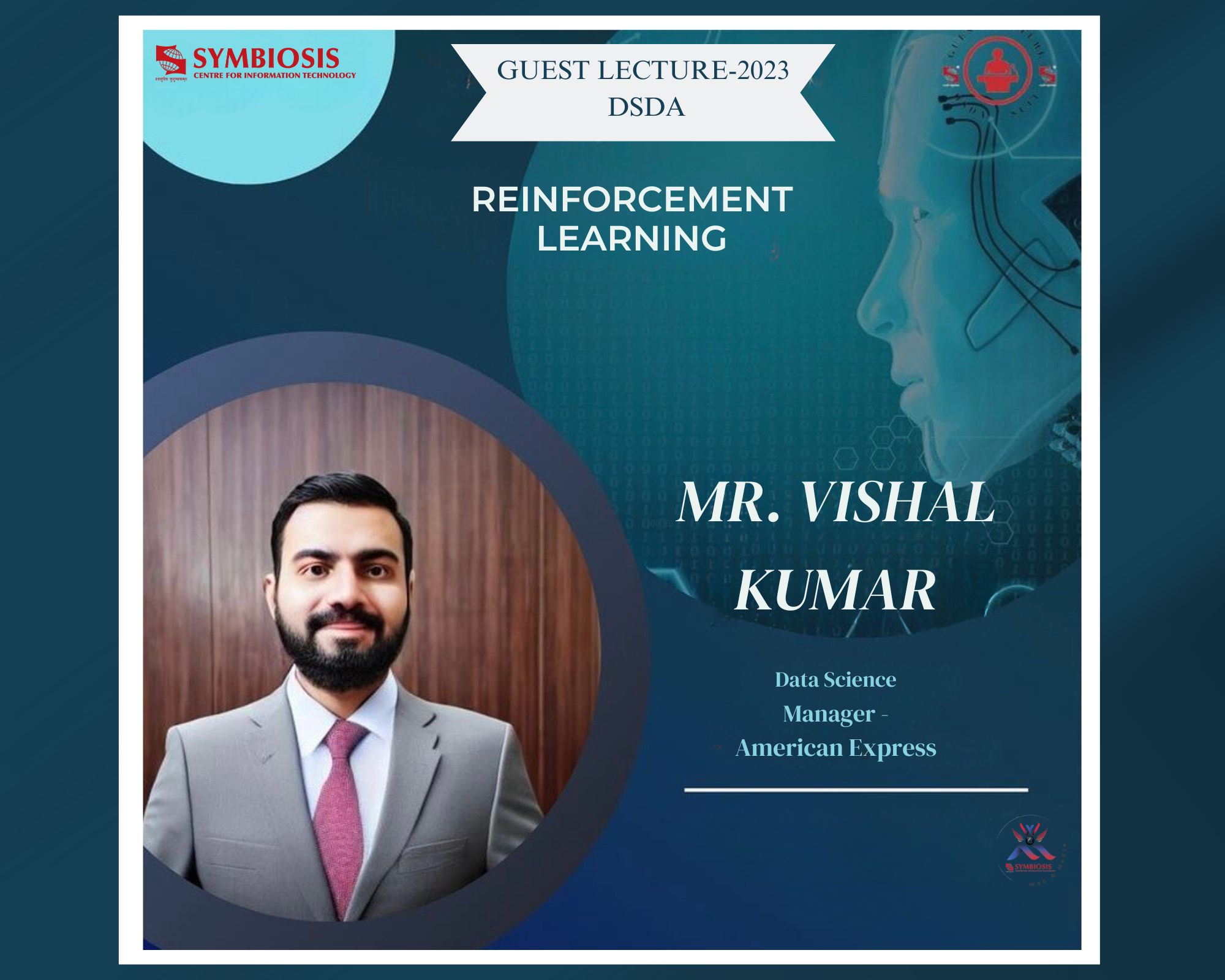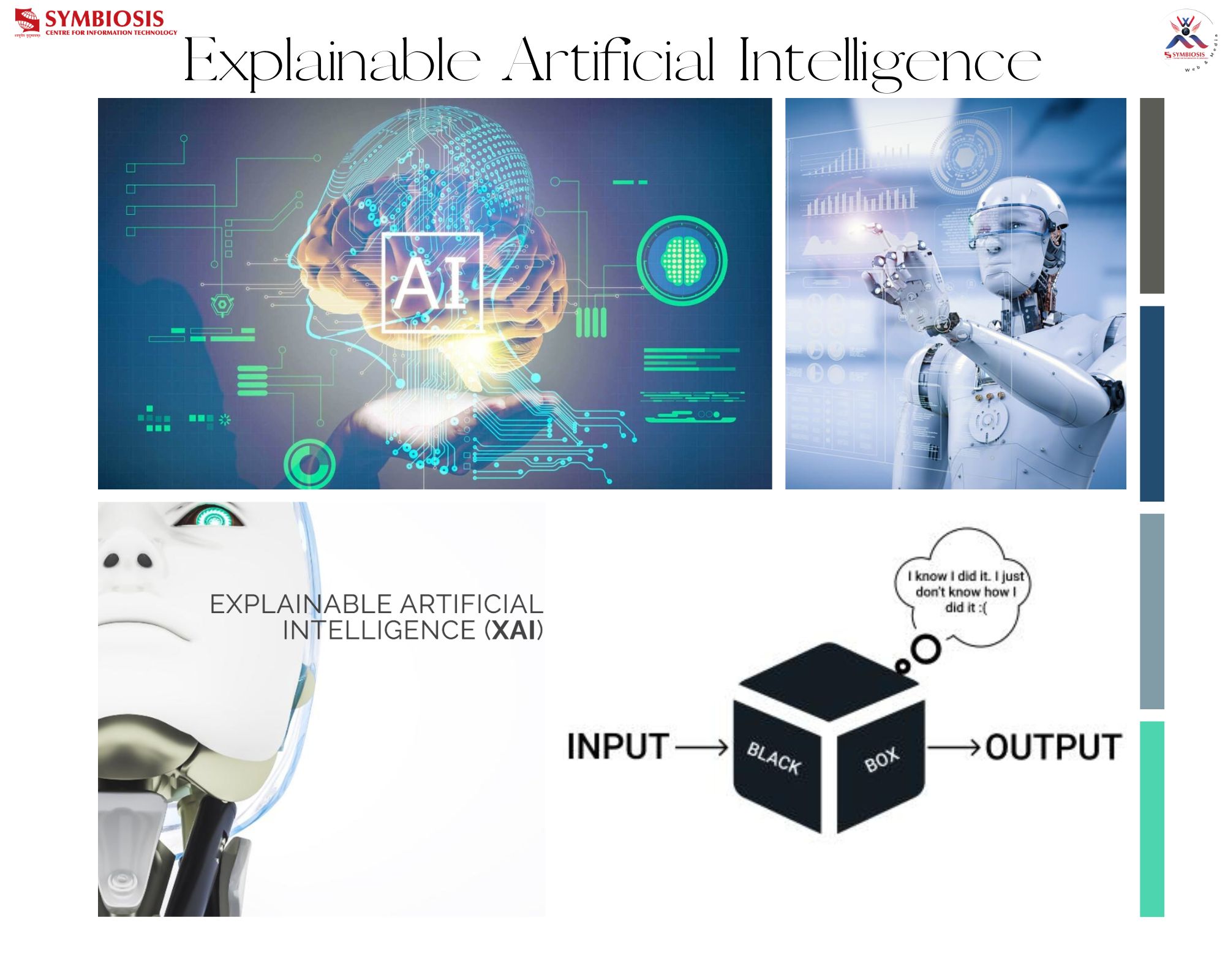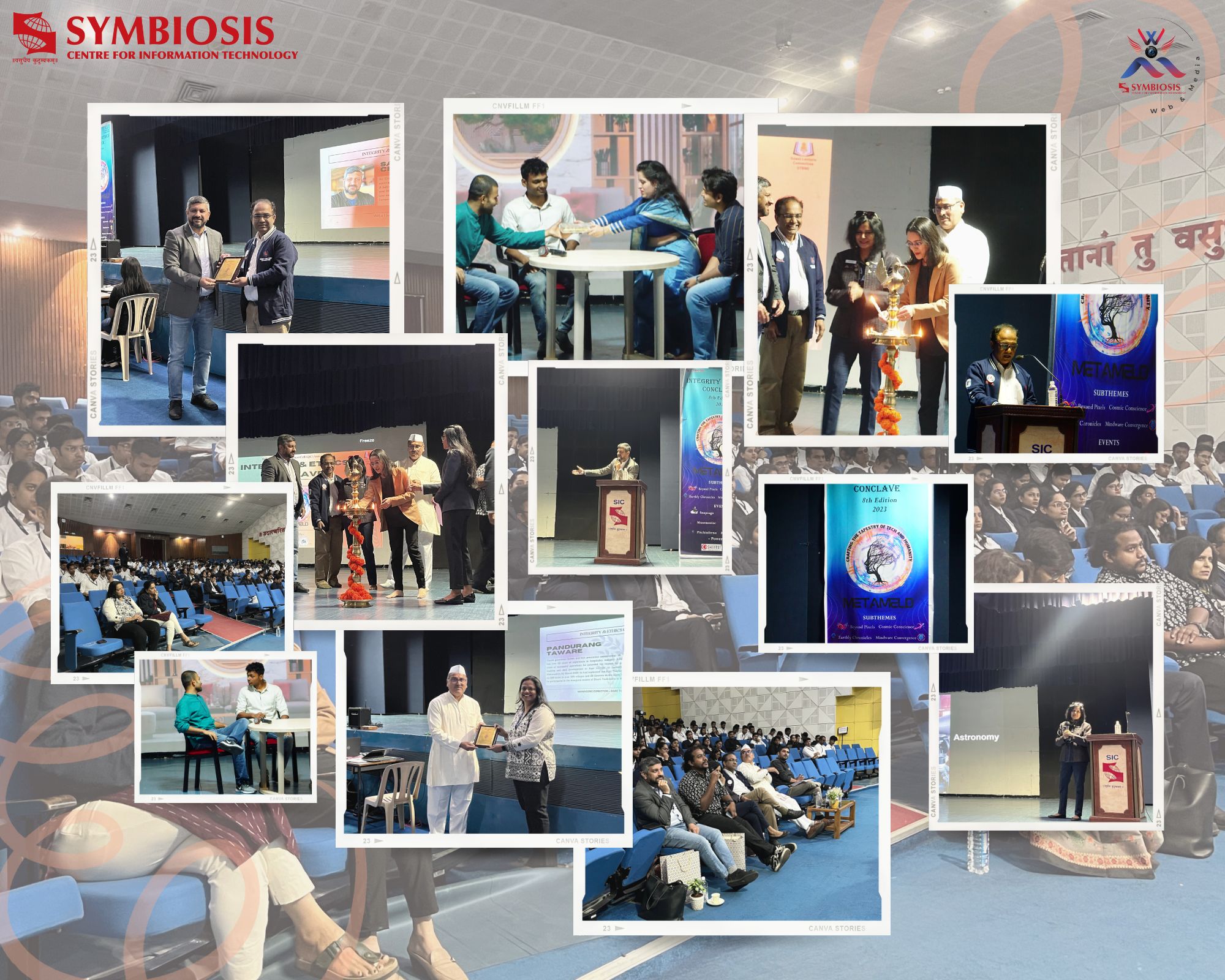How to be Creative On-demand
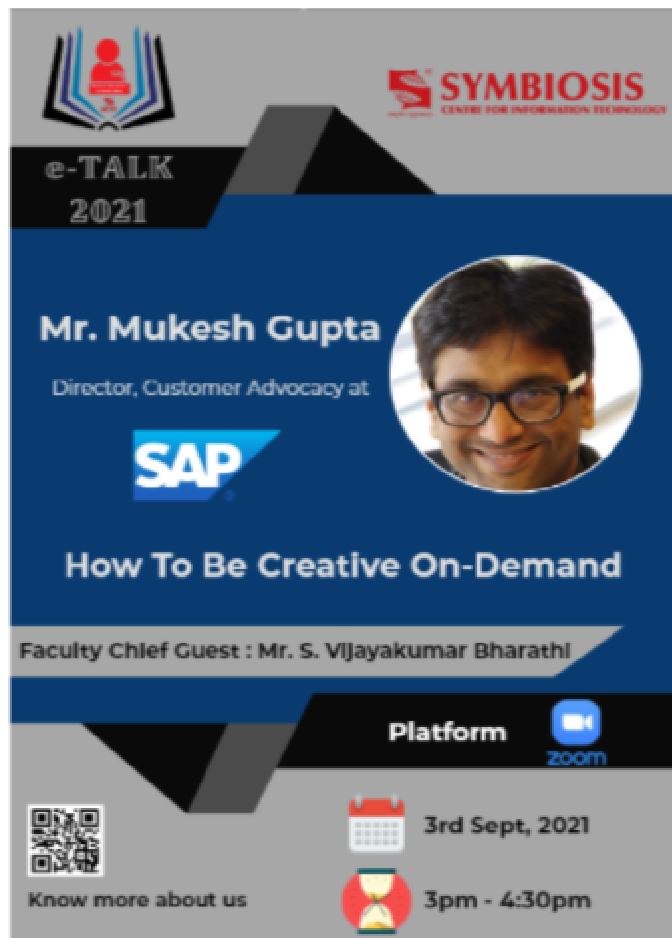
The All-time happening topic ‘How to be Creative on-demand was organized in September 2021 as a part of E-Talk. The Speaker of the topic was the supercool Mr. Mukesh Gupta the Director, Customer Advocacy at SAP who advised students to take things on a lighter note and enjoy them.
This turned out to be one powerhouse of a session filled with short excerpts from movies, flooding messages in the chatbox, and group activities.
He started off by coining the new definition of Creativity which even Google can’t find you. He said ‘Creativity is an act which results in something tangible’. Just being out of the box is not suffice it has to be fruitful. He rightly pointed out that each one of us is creative in our own way. But we differ in how we can express our creativity.
Before explaining how to achieve creativity he walked us through how our mind works. A brain is a pattern-matching machine. It collects all the inputs from all the senses and sorts them and makes them coherent for us in ways that make sense to us. The brain accomplishes this by functioning based on assumptions from past experience. So, Mr. Mukesh asked us to defy the assumptions and think from different standpoints.
He explained how boredom leads to creativity by citing how Einstein founded the theory of relativity in the dullness. He amazed all the students by stating that creativity requires constraints. He finally spelled out the mantra for creativity. 1. Intention. 2. Attention. 3. Connection. Then he pulled his final card by splitting students into various breakout zones and asked them to come up with 100 questions. The major takeaway for the students in this activity was that they should first ask something before acting upon then look for it and experience it. The session ended with Mr. Mukesh sharing some real-time training on how to be creative.
~ ‘99% of the time, the problem that is presented to you is not the real problem’

